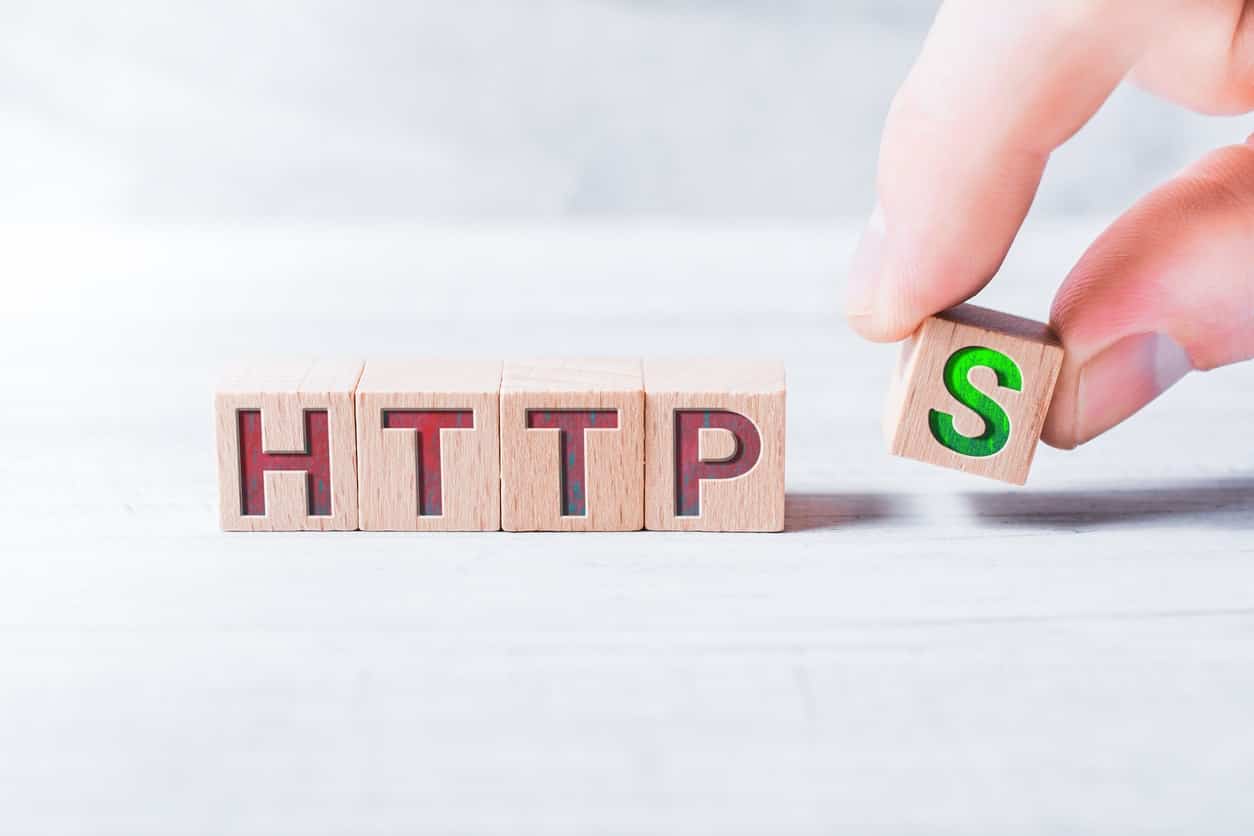Obtaining an SSL certificate does a lot more than add an "s" to the "http" in your URL. Yet despite the growing importance of SSL in the internet world, many business owners still don't understand or use the technology. Such website owners could benefit from catching up, because websites without SSL certification suffer in search engine rankings, lose visitors, and harm their website's image. If you handle user information to any extent, it's crucial that you install SSL to protect customers and solidify your trustworthy reputation.
What is SSL?
SSL stands for Secure Sockets Layer, a technology that protects information transfers from being intercepted. When a user submits a form on an unencrypted website, the information can be viewed through a relatively simple form of hacking. SSL prevents this from happening by securely connecting the user's browser to your host server, blocking anyone outside of this connection from viewing the transfer. Installing SSL on your website is a relatively simple process, and while it does typically require a small fee, it is well worth it if you process sensitive information.
Is SSL Necessary?
Put simply, yes.
Failing to secure an SSL certificate for your website puts both you and your customers at risk. When users submit a form on your website, they implicitly trust that you have taken the measures necessary to protect the information. There is an expectation that your company—and only your company—will see that data. But if you haven't installed SSL, you can't make that guarantee, and you put both parties at risk of a security breach. Of course, such breaches are detrimental both your bank account and your reputation, so it's important to prevent them at all costs. (And thankfully, installing SSL is not a high cost at all. It's certainly cheaper than legal representation in the event of a cyberattack.)
Popular browsers like Google Chrome will warn users if the website they've accessed lacks a valid SSL certificate, and surveys suggest that 85% of U.S. users will stop browsing such websites without making a purchase. If you don't have SSL on your website, you've almost certainly lost customers without even realizing it. On the flip side, users can often also see when a website is secured, which can go a long way towards establishing your reputation as a company who cares about people's privacy. Building trust in this way increases customer confidence in your brand and encourages repeat business.
A final pragmatic benefit of SSL is that it improves visibility. Google doesn't just flag websites without SSL, it rewards those that use it by bumping their search engine ranking. This means that the simple, necessary step of securing your website also boosts your SEO efforts.
Protect Yourself and Your Customers With SSL
Obtaining an SSL certificate is a small investment that pays huge dividends. By installing an SSL certificate on your website, you tell customers that you value and protect their information, which in turn builds trust. You also arm your company against the legal and monetary ramifications of a security breach. And almost as a bonus, you draw new customers through better search engine rankings.
If these benefits of enhances security, reputation, and visibility are appealing to you, the first step is to work through the SSL certification process. The experts at Neon Rain can assist you in applying for and installing an SSL certificate as part of our comprehensive web design and marketing packages. We'll also draw on our decades of experience to achieve these goals through other means, including website optimization and targeted SEO practices. To learn more about our website services and expertise, give us a call at 303-957-3092.
Additional Sources:
https://blog.hubspot.com/marketing/what-is-ssl
https://security.googleblog.com/2014/08/https-as-ranking-signal_6.html
